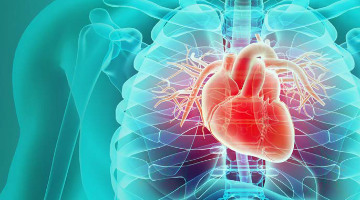Heart treatments
At Spire Leeds Hospital, we offer diagnosis and specialist treatment for a wide range of heart and circulatory conditions.
Related specialties
- Cardiac surgery
- Cardiothoracic surgery
- Cardiology
- Stroke and TIA
Why Spire?
- Fast access to a wide range of treatments
- Internationally and nationally renowned consultants
- Clear, inclusive pricing
Specialist cardiac care from Spire Leeds Hospital
The heart is the engine of our bodies, pumping nutrient and oxygen rich blood to every cell. But the constant demand we make on it can take its toll and lead to a number of health conditions.
We offer fast access to a wide range of procedures from tests and scans to help investigate and diagnose illness, to treatment and surgery for more complex heart-related conditions. Whether it is chest pain concerns, high cholesterol, palpitations or heart disease, our highly experienced, specialist cardiology teams are here to help keep your heart running as it should.
Your heart is in our hands and to us, there is no greater trust – making a positive difference to our patients’ lives through outstanding personalised care is at the heart of everything we do.
Select from our range of available heart treatments
- Ablation of arrhythmia
- Blood clot or thrombosis test
- Blood pressure test
- Cardiac catheterisation
- Cardioversion
- Cholesterol level test
- Pacemaker implantation
- ECG monitoring or event recorder - 24/48 hour
- Cardiac CT scan (heart CT)
- Contrast echocardiogram
- Electrocardiogram (ECG)
- Exercise ECG
- Transoesophageal echocardiogram
- Sleep apnoea test
- Stress electrocardiogram
- Lung function test
Find a consultant at Spire Leeds Hospital
What is Spire Leeds' cardiology and respiratory centre?
Spire Leeds’ cardiology and respiratory centre is one of the largest private heart centres in the region and provides a comprehensive heart testing and treatment service for patients from Leeds, Harrogate, York and the surrounding areas in Yorkshire.
We pride ourselves on delivering high quality specialist cardiac care and superior service. From your first contact with us, through to the completion of your treatment and aftercare, you will receive expert care every step of the way.
We offer a full range of outpatient diagnostic tests and interventional therapies for a variety of conditions in our state-of-the-art cardiology catheterisation suite. As a private hospital with a high dependency unit, we are able to support all aspects of cardiology.
We have a selection of skilled cardiology and respiratory specialists who have met stringent standards and are at the top of their profession. Our consultants have a wealth of experience from holding specialist NHS posts and have proven expertise in complex sub-specialities.
Spire Leeds’ cardiology and respiratory centre operates with a multidisciplinary team that includes consultant cardiologists, consultant respiratory physicians, anaesthetists, physiologists and radiologists. You can be assured you will receive some of the best care available.
Is heart surgery and treatment for you?
Heart problems can affect anyone at almost any age. They can be caused by a natural defect, genes or an unhealthy lifestyle. For many people, heart surgery provides relief from symptoms such as breathlessness and a lack of energy – giving them the chance to enjoy a fuller life.
We provide the highest quality specialist care – from the first moment you are in touch with us through to the completion of your treatment and aftercare. Whether you use private medical insurance or you’re paying for treatment yourself, we provide expert care every step of the way.
Featured articles
Understanding coronary artery disease: risk factors, symptoms and treatment
There are over two million people in the UK living with coronary artery disease, also known as ischaemic heart disease or coronary heart...
Read moreChest pain and cardiovascular problems: when to seek help
Having chest pain can be worrying, and it can be hard to know when to seek help.
Read moreAtrial fibrillation: the causes, treatments and risks explained
Atrial fibrillation is the most common heart rhythm problem affecting around 1.5 million people in the UK alone.
Read moreGet in touch
Important information about COVID-19 tests
COVID-19 testing or antibody tests are not available as a standalone service at Spire Leeds Hospital.



